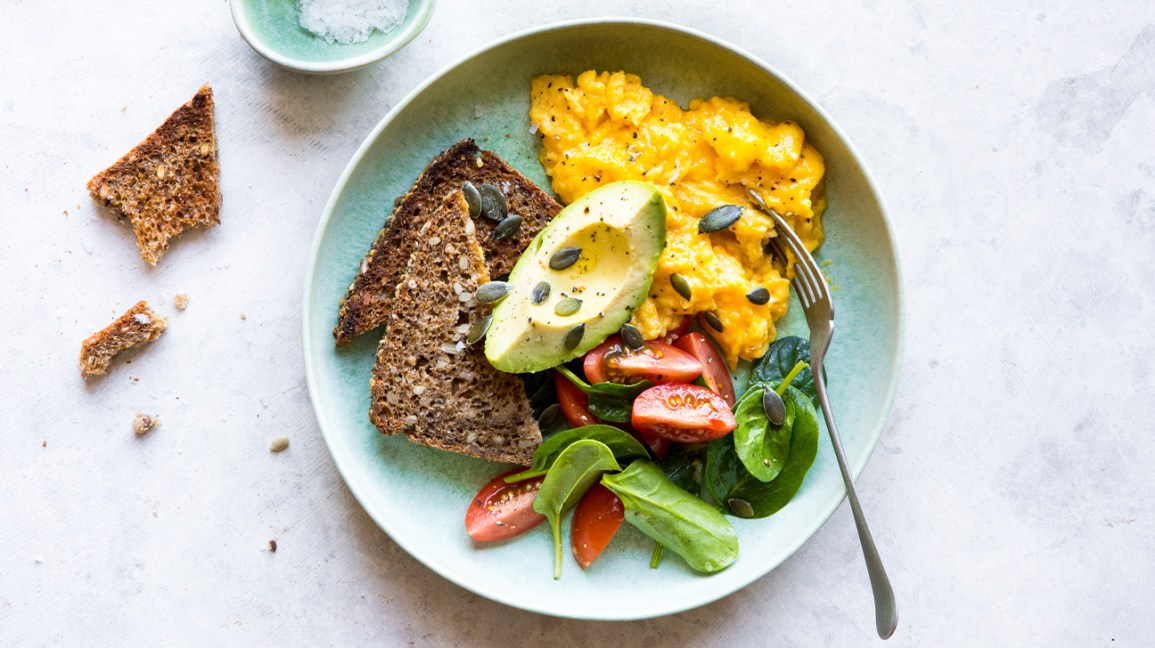What to eat to lose weight: healthy foods that don’t make you fat
The principles of weight loss have been studied for decades. However, saying weight is misleading as our body is made up of various elements. The water we contain “weighs”. Lean mass, ie muscles, “weigh”. Abdominal fat “weighs”. The brain “weighs”. Tissues “weigh”, bones “weigh”.
So let’s say it would be much more correct to talk about excess fat loss .
After all, we are much more familiar with this concept due to everyday experience.
The same experience on a purely anecdotal level that has more of a scientific relevance, makes us understand that “eating less” – especially certain foods – results in weight loss.
But the error is always around the corner precisely because we focus on less indicative quantities than we think: the first is the weight, the second is the calories ingested.
That there are no absolute values is undisputed: everyone has their own physiology, the composition of body mass is different from individual to individual and is conditioned by factors such as age, sex, lifestyle, dietary habits. strict sense and other environmental and genetic factors.
I have said and written about calories before: the calorie deficit is usually a very valid trigger for triggering weight loss, in the sense that if you ingest fewer calories, with the same metabolic consumption, the result is that you lose fat.
But it doesn’t mean that you are necessarily better. In the most marked cases of overweight this is certainly a gain. But it is one thing to lose excess fat, it is another thing to maintain a healthy weight for life. And here two fundamental concepts come into play:
– that of physical training (ie finding a way to carry out a daily or almost daily physical activity, which is feasible over time, over the years); the aim is to obtain a form of extra calorie restriction with respect to nutrition and collect the benefits of training.
– introducing a dietary lifestyle based on the principles of proper nutrition. And by doing this, access is limited to those foods which, due to their composition, are intended to burden the body, weakening it from its very foundations.
It is by introducing these two elements that you can easily understand how losing weight (or excess fat ) in nutrition doesn’t just depend on what you eat.
Having said that … there are virtuous foods , which for the same portions, weight, calories generate advantages in terms of health and well-being, reaching both the goal of correct nutrition (and potentiating), and maintaining a healthy weight (thanks to the contribution of daily training).
This list below is for guidance only and is not intended to represent a food pattern or diet plan. As I have already done with the foods that make you fat the most, moderation is always the correct answer.
The foods reported, however, are satiating, and are not high-calorie. Plus, their nutritional intake has solid scientific feedback , so you can rank them as healthy foods.
The advice, as always, is not to abuse and to vary often throughout the week.
To lose weight by eating, as already suggested in my book “Eat that you lose weight”, you have to start with 3 fundamental steps.
- Metabolic reprogramming
- Taking the measurements that matter, since the “weight” is very generic
- Set goals and change the way you shop at the supermarket
Once has passed this preliminary phase and you know how you are and where you are, you can begin to lose weight by eating, opting for a cuisine that is more respectful of your nutritional balance and your real needs energetic. Let’s go then…
Avocado
This exotic fruit just two decades ago wasn’t as consumed as it is today. It probably depends on the fact that unlike other fruits typical of our latitudes, it is fatter than sugary . Today it is consumed as a “side ingredient” in salads, for its freshness and for its well-known antioxidant benefit. (source)
Beef and chicken and turkey meat
Those with a vegan or vegetarian lifestyle embrace a philosophy based on respect for other living beings. But given that plants and trees are also living beings, it should also be recognized that it was the consumption of meat that pushed man towards evolutionary leaps that other species can only dream of.
Cooked meat has changed our anatomical structure, making us more chewers than animals capable of tearing up living flesh, like cats do.
To benefit from this was our brain, which in its evolution has been able to concentrate on the use of tools and on an upright position, to facilitate the hunting of prey (source ). So … beef and chicken and turkey, three typical species from permanent farming , have real advantages: rich in protein, low in fat, relatively less caloric than other meats. (source)
There are also lean cuts of pork, another animal raised to ensure low-cost calories. While the cured meats should be moderate.
meat should be eaten in moderation, but it is essential for development and growth.
Whole grains
The original Mediterranean diet was presumably based on unrefined raw flours. Now, it is impossible to provide a balanced diet without cereals because being rich in carbohydrates they are the basis of our diet. The fundamental pillar on which all our energy demand rests. Pasta, bread, rice are part of all cultures and the cultivation of wheat has forged human civilization .
But wholemeal pasta or rice is one thing, the refined products that are full of supermarket shelves are another thing. Add to these the other grindable cereals and you always get a healthy and nutrient-rich base for a first course (minerals and vitamins at will). All this in moderation and obviously varying (you must take into account that in your food plan you will also get carbohydrates from other sources, vegetables and legumes for example).
Beans, lentils and other legumes
Those who observe a diet consider them as a substitute for meat, because in addition to sugars they also contain a good percentage of fibers and proteins. There is no need to combine them with pasta or potatoes for example. On the other hand, legumes can be a good side dish compared to a “moderate” dish of lean meats.
Fresh and light cheeses
Cottage cheese is the classic cheese indicated for weight loss. The other great Italian cheeses, soft, semi-matured or matured, can be eaten, yes, but in moderation, as a side dish with fruit or at the end of a meal to complete the fat and protein supply. The same goes for milk, which you should consume with less fat and in any case calculating the entire protein intake (everything in excess makes get fat) .
Fruit
There are countless scientific researches that prove the benefits of regular fruit consumption. It is the ideal substitute for snacks and snacks. It should preferably be consumed in season. Rich in fiber, antioxidants and sugar which is still necessary for your energy needs. Always avoid added sugars (and therefore fruit juices that are not equivalent to fruit).
Dried fruit, especially nuts
They are a rather fat seed, but the fats contained are healthy, being rich in Omega-3 and Omega-6 in the right division. Studies of all kinds confirm the benefits . Being a fatty food, it should be consumed in moderation.
Boiled potatoes
Potatoes are a bit of the cross and delight of food. They should be considered as alternatives to pasta or bread, but in reality they should be eaten boiled, lightly seasoned with EVO olive oil and not too much salt. They represent a complete meal… even here history helps you to prove it. A potato famine was enough to kill a million Irish and trigger the largest immigration to the United States of the mid-19th century.
Fish such as tuna, salmon, blue fish
Since childhood we have been taught that fish is a healthy food, good for sight, memory and so on … these “beliefs” typical of popular wisdom hide more than a scientific validity, from since these meats are high in healthy fats, high in protein and relatively low in calories. Fish must play an important role in your weekly diet, always in moderation due to mercury pollution.
Spinach, celery, carrots…
A separate specification for these vegetables, vegetables and tubers particularly known for their antioxidant strength (source). The benefits are also many in relation to appetite because they have a high satiating power.
Eggs
As far as I’m concerned, chicken eggs can be considered a miracle food. Those of my generation remember the typical scene of Lieutenant Colombo who always keeps a boiled egg in his pocket, his breakfast. And the egg for breakfast is perfect, cooked the way you like it, with no special additions.

They are rich in nutrients, complete, satiating. The fears related to the rise in cholesterol peaks concern only certain categories of individuals. And in any case, it’s not like you should only eat eggs. Don’t worry about eating one a day though. An egg for breakfast keeps you fuller and doesn’t force you to resort to deleterious supermarket snacks.
Vegetables and vegetables
Vegetables and vegetables belong to our culinary tradition, with various preparations, from salads to soups.
So you just need to ensure a daily consumption of vegetables to be sure of losing weight. They eliminate the stimulus of hunger, are rich in water and minerals and have recognized antioxidant, anti-inflammatory and anti-tumor properties. Especially the now famous cruciferous vegetables.
Greek yogurt
In supermarkets you are often easily fooled by writing like zero fat, in this case you have to refer to the word zero sugar. And Greek yogurt is the only one that is really worth buying. Useful as a mid-morning snack or as a substitute for a breakfast that is often too sweet and low in protein.
What about drinks?
As drinks … water is your ideal drink , without a doubt you must not abuse alcohol and carbonated drinks from the supermarket that would be better to delete from your life. The juices extracted from the fruits are good and nutritious, the problem is that it is not easy to obtain a glass from a single fruit , getting rid of the pulp, with the consequence of increasing the sugar intake. This will lead to counterproductive results.
I hope this article has helped clarify your ideas and help you develop a meal plan that is sustainable over time.
You have to avoid the usual things: junk food, fried in excess, oils other than extra virgin olive oil, overly fatty meats, sweets, juices, and all packaged baked goods. Moderation with alcohol (a beer every now and then does not hurt, it is a drink that in summer often gives comfort, but makes you fat… as well as giving you all the negative effects of a toxic substance such as alcohol)… the same goes for wine.
For the rest, always pair your diet with a daily training regimen, which can even be a 45-minute walk and you will see that you will achieve multiple tangible and measurable goals and results at the same time.
If you are interested in developing better and understanding how nutrition works from a scientific point of view, follow this video lesson taken from the course ” Potential Nutrition “, a real concentrate of essential information for eating well and living longer. 

